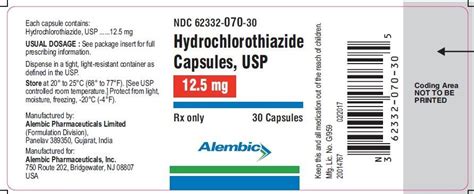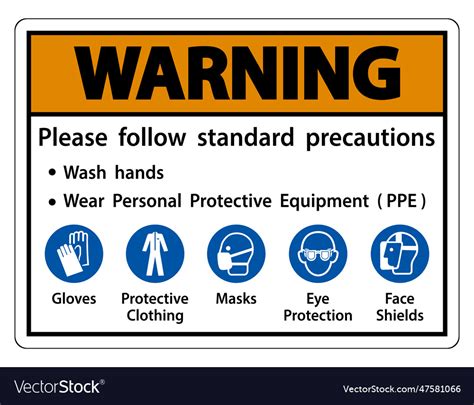Intro
Discover Hydrochlorothiazide 25mg tablet uses, a diuretic medication for hypertension, edema, and heart failure treatment, managing blood pressure and fluid retention with effective water pills and thiazide diuretics.
Hydrochlorothiazide, commonly known as HCTZ, is a diuretic medication that has been widely used for decades to treat various conditions related to fluid retention and high blood pressure. The 25mg tablet is one of the most common dosages prescribed to patients. Understanding the uses, benefits, and potential side effects of hydrochlorothiazide 25mg tablets is essential for individuals who are prescribed this medication.
Hydrochlorothiazide belongs to a class of medications known as thiazide diuretics, which work by helping the kidneys remove excess fluid and salt from the body through urine. This process can help reduce blood pressure and alleviate symptoms associated with fluid retention, such as swelling in the feet, ankles, and hands. The medication is often prescribed to patients with hypertension (high blood pressure), edema (swelling caused by excess fluid), and other conditions that involve fluid retention.
The importance of managing high blood pressure and fluid retention cannot be overstated. Uncontrolled hypertension can lead to serious health complications, including heart disease, stroke, and kidney damage. Similarly, untreated fluid retention can cause discomfort, mobility issues, and increase the risk of developing more severe conditions. Hydrochlorothiazide 25mg tablets offer an effective solution for managing these conditions, making them a crucial part of many treatment plans.
Hydrochlorothiazide Mechanism of Action

Hydrochlorothiazide works by inhibiting the reabsorption of sodium and chloride in the distal convoluted tubule of the kidneys. This inhibition leads to an increase in the excretion of sodium and water, resulting in a decrease in blood volume and subsequently lowering blood pressure. The reduction in fluid volume also helps in reducing the workload on the heart, which can further contribute to lowering blood pressure.
Benefits of Hydrochlorothiazide 25mg Tablets
The benefits of hydrochlorothiazide 25mg tablets are multifaceted. They are effective in: - Reducing blood pressure in patients with hypertension. - Alleviating symptoms of edema, such as swelling in the feet, ankles, and hands. - Helping manage conditions like nephrotic syndrome, where there is a significant loss of protein in the urine. - Assisting in the treatment of heart failure by reducing fluid buildup in the lungs and other parts of the body.Uses of Hydrochlorothiazide 25mg Tablets

Hydrochlorothiazide 25mg tablets are used for a variety of medical conditions, primarily those related to hypertension and fluid retention. Some of the key uses include:
- Hypertension: To lower high blood pressure and reduce the risk of heart disease and stroke.
- Edema: To treat swelling caused by excess fluid in the body, which can occur in conditions like nephrotic syndrome, heart failure, and liver cirrhosis.
- Nephrotic Syndrome: To manage the loss of large amounts of protein in the urine.
- Heart Failure: To reduce fluid buildup in the lungs and other parts of the body, alleviating symptoms such as shortness of breath.
Administration and Dosage
The dosage of hydrochlorothiazide 25mg tablets can vary depending on the condition being treated and the patient's response to the medication. It is typically taken once daily, and the dosage may be adjusted by the healthcare provider based on the patient's blood pressure response and tolerance to the medication. It is crucial to follow the prescribed dosage and administration instructions carefully to maximize the benefits and minimize potential side effects.Potential Side Effects

While hydrochlorothiazide 25mg tablets are generally well-tolerated, they can cause side effects in some individuals. Common side effects include:
- Increased urination
- Dizziness or lightheadedness
- Headache
- Fatigue
- Nausea or vomiting
- Muscle cramps
- Weakness
More serious but less common side effects can include:
- Electrolyte imbalance (particularly potassium deficiency)
- Allergic reactions
- Increased risk of diabetes
- Changes in kidney function
It is essential for patients to discuss any concerns or side effects with their healthcare provider, as adjustments to the dosage or switching to a different medication may be necessary.
Interactions with Other Medications
Hydrochlorothiazide can interact with other medications, either enhancing their effects or increasing the risk of side effects. Patients should inform their healthcare provider about all medications, supplements, and vitamins they are taking. Key interactions include: - Potassium supplements or other diuretics, which can affect electrolyte balance. - Medications for diabetes, as hydrochlorothiazide can affect blood sugar levels. - Cholestyramine, which can reduce the absorption of hydrochlorothiazide.Precautions and Warnings

Certain precautions and warnings should be considered when taking hydrochlorothiazide 25mg tablets:
- Pregnancy and Breastfeeding: Hydrochlorothiazide should be used with caution in pregnant women and those who are breastfeeding, as it can affect the fetus or baby.
- Electrolyte Imbalance: Regular monitoring of electrolyte levels is crucial to prevent imbalances, particularly hypokalemia (potassium deficiency).
- Allergic Reactions: Patients should be aware of the signs of an allergic reaction and seek medical help immediately if they occur.
- Sun Sensitivity: Hydrochlorothiazide can increase sensitivity to the sun, so patients should use protective measures such as sunscreen and clothing to prevent sunburn.
Monitoring and Follow-Up
Regular monitoring of blood pressure, electrolyte levels, and kidney function is essential for patients taking hydrochlorothiazide 25mg tablets. Follow-up appointments with the healthcare provider are crucial to assess the effectiveness of the treatment, adjust the dosage if necessary, and manage any side effects that may arise.Conclusion and Future Perspectives

In conclusion, hydrochlorothiazide 25mg tablets are a valuable treatment option for managing hypertension, edema, and other conditions related to fluid retention. By understanding the uses, benefits, potential side effects, and necessary precautions, patients can work closely with their healthcare providers to maximize the benefits of this medication. As research continues to evolve, the role of hydrochlorothiazide in managing cardiovascular and renal diseases may expand, offering new hope for patients worldwide.
We invite you to share your thoughts, experiences, or questions about hydrochlorothiazide 25mg tablets in the comments section below. Your engagement can help others better understand this medication and its implications for their health. Additionally, feel free to share this article with anyone who might benefit from the information provided.
What is the primary use of hydrochlorothiazide 25mg tablets?
+Hydrochlorothiazide 25mg tablets are primarily used to treat hypertension (high blood pressure) and edema (swelling caused by excess fluid in the body).
How does hydrochlorothiazide work?
+Hydrochlorothiazide works by inhibiting the reabsorption of sodium and chloride in the kidneys, leading to an increase in the excretion of sodium and water, which helps reduce blood volume and lower blood pressure.
What are the common side effects of hydrochlorothiazide 25mg tablets?
+Common side effects include increased urination, dizziness, headache, fatigue, nausea, and muscle cramps. More serious side effects can include electrolyte imbalance, allergic reactions, and changes in kidney function.
